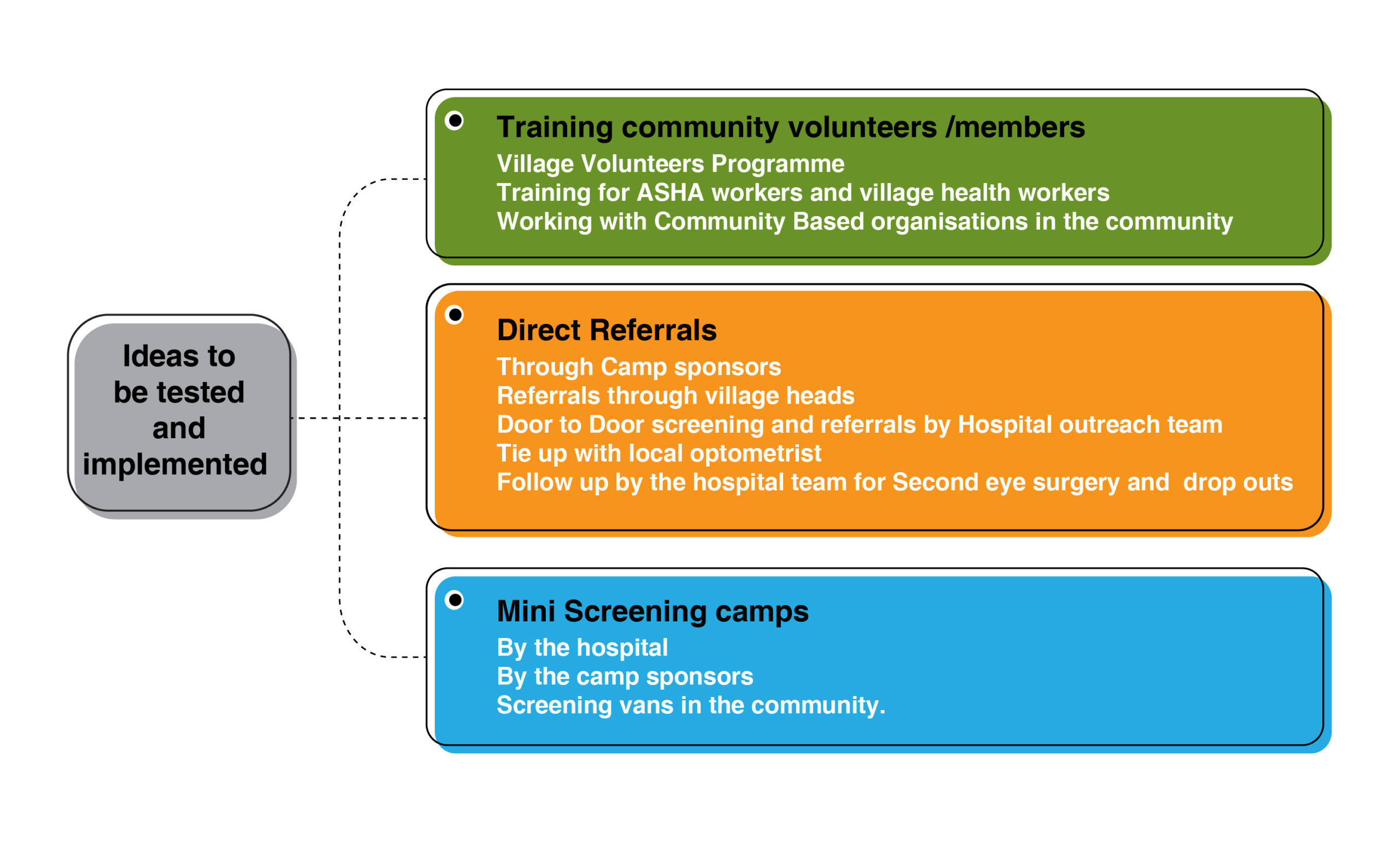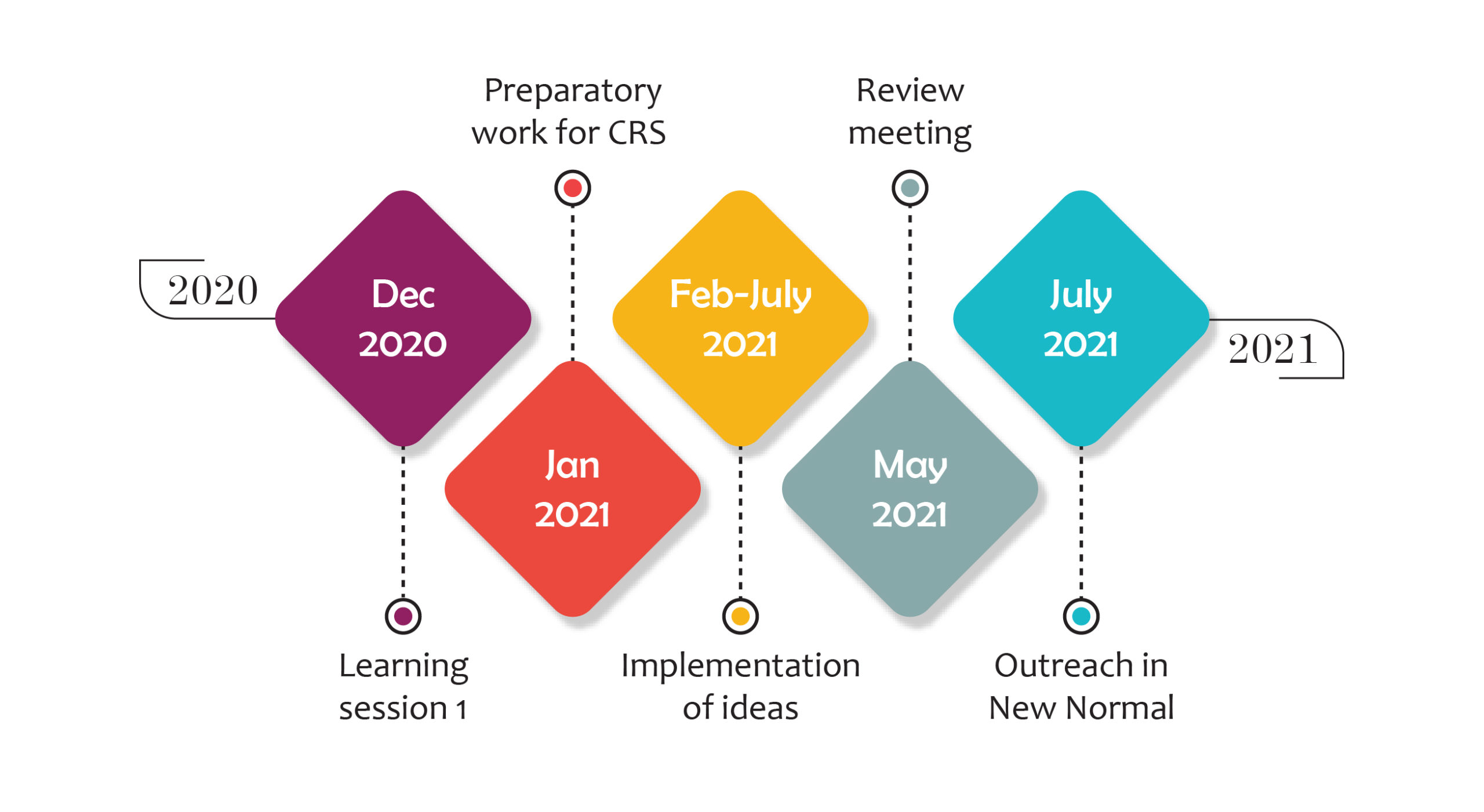
There is evidence that engaging community increases the service update and the outcomes in the domain of public health. In eye care, to a major extent community were used in organizing the outreach programs offered/undertaken by many eye hospitals.Very few efforts were made to establish a system for community engagement and a referral mechanism. The current crisis brought by Covid 19 has made a direct impact on the access to eye care for both the hospital and the community.Therefore, to address the access gap and service uptake we need to be innovative, work closely with communities, and build robust systems that will enable the community to take ownership of its eye care needs and make it a more community-driven initiative.
About this collaborative
Community Referral System (CRS) in the context of eye care can be defined as a pool of strategies in which the people with common eye problems (especially cataract and refractive error) are self-identified or identified by volunteers, health workers, or paramedics in the community and refer them to an eye hospital for appropriate intervention and follow up.
This Joint learning is all about testing and adopting various innovative strategies for creating access to eye care and make it more community-driven.
What this collaborative will offer
- Sharing the currently practiced eye care Community Referral System model
- Facilitating in standardizing and spreading these ideas through improvement science.
- Support for establishing systems to document and monitor these implementations.
To increase the cataract surgical volume at the base hospital through adopting the Community Referral system.
Outcome:
By the end of eight months
- Tested and standardized at least two or three ideas as a successful strategy to reach out to the community
- Minimum 50 Cataract Surgeries being performed per monththrough the Community Referral system.
Benefits:
- The tested strategies will eventually increase the demand and may become a permanent stream for the patients to access care.
- Bridges the access gap and there will be a significant increase in Cataract surgical volume
It is cost-effective and highly outcome-oriented with less investment.
- This eight months collaborative is done online through virtual learning sessions, webinars, weekly and monthly calls, and review meetings.
- We will be using IHI’s science of improvement approach that emphasizes innovation, rapid-cycle testing in the field, and spread to generate learning about what changes, in which contexts, produce improvements.

Eye Hospitals who have
- Strong desire to engage with the community, willingness to innovate and implement strategies to create access for the people seeking eye care in the community
- Ready to test ideas in the community to get referrals for surgeries and other eye care problems
- Invest in time and people to plan, implement and monitor the program
For India and Nepal candidates: INR 59,000 (Inclusive of GST)
For Others: USD 500

